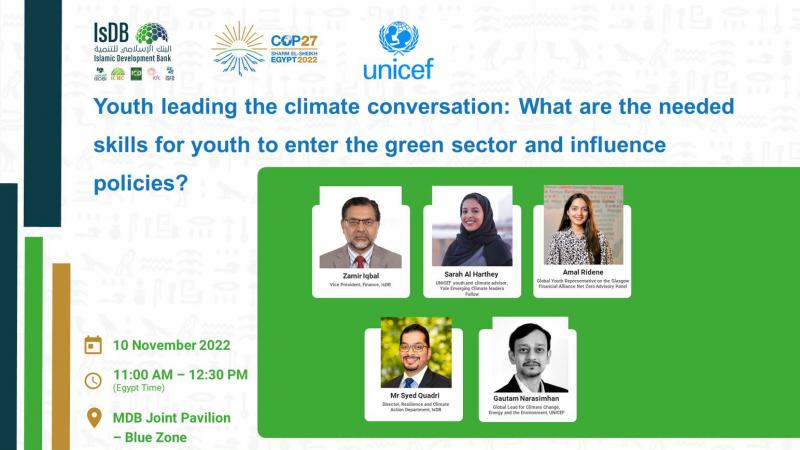
Youth leading the climate conversation: What are the needed skills for youth to enter the green sector and influence policies?
Time & Date of Event
11:00 AM to 12:30 PM on Thursday, 10th of November 2022
Event Overview
The shift to a green economy is increasing the pace of change in labour markets and skill needs. A recent study of 21 countries, which represent 60 per cent of the world population, shows that economies moving towards greener production can seize the potential for job creation if they deal effectively with the coming structural change and transformation of existing jobs. The report examines the experiences of developed and developing countries in adjusting their training provision to meet the new demands of a greener economy. It shows that while few new occupations emerge in the transition to greener work, massive change occurs in existing occupations, and changes in skill profiles at all levels of qualifications and across all sectors require action to make the provision of education and training relevant to labour market needs.
While the net employment effects of greening and the economy are estimated to be positive, carbon-intensive industries are expected to lose jobs. Successful transitions from old to new, greener industries and occupations will require efficient retraining and skills upgrading. A key element of the transformation must be to target training initiatives to segments of the population typically at a disadvantage in the labour market. Skills development is critical to unlocking the employment potential of green growth, especially for young people, yet skills policies and environmental policies are still often dealt with in isolation from one another.
These young people experience the most frequent and severe climate shocks, putting their health, development, and future at risk. While they are the most at risk from the impacts of climate change, children and young people are also key agents for change, and they are usually are left out of the decision-making processes that affect their lives. To empower them and to accelerate youth-led action for climate change, young people need to have their skills and capacities built up to raise awareness, advocate, and influence national and global policies on climate change, helping them in the broader enabling environment to help others take action for climate change adaptation to ensuring more equitable local polices on climate resilience. By investing in young people, and providing them with needed skills and opportunities, they will be empowered to speak out and act on the issues that impact their lives, and allow them to lead the change, which includes as well preparing them for the future green jobs.